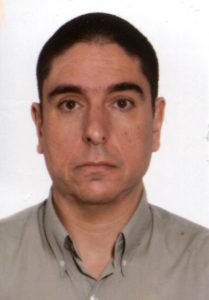 Starting from Translation Studies, as both an academic discipline and a professional practice in the early 90s, I soon embarked on the then innovative field of corpus linguistics and started exploring its links with, and applicability in, translation and interpreting studies. Soon after finishing my PhD in Corpus Linguistics, Translation and Terminology in 1999, and having already worked for more than a decade as a professional translator and head of a translation agency, I started teaching at the Department of Translation and Interpreting of the Ionian University in Greece. Currently, I am Associate Professor of Corpus Linguistics and Translation Studies at the University of Athens (School of Economics and Political Science), as well as director of the IT research lab and co-director of the Bilingualism, Linguistics and Translation research lab and deputy director of the Translation and Interpreting postgraduate programme at the University of Athens.
Starting from Translation Studies, as both an academic discipline and a professional practice in the early 90s, I soon embarked on the then innovative field of corpus linguistics and started exploring its links with, and applicability in, translation and interpreting studies. Soon after finishing my PhD in Corpus Linguistics, Translation and Terminology in 1999, and having already worked for more than a decade as a professional translator and head of a translation agency, I started teaching at the Department of Translation and Interpreting of the Ionian University in Greece. Currently, I am Associate Professor of Corpus Linguistics and Translation Studies at the University of Athens (School of Economics and Political Science), as well as director of the IT research lab and co-director of the Bilingualism, Linguistics and Translation research lab and deputy director of the Translation and Interpreting postgraduate programme at the University of Athens.
In the past, and in parallel to my core academic and research activities, I have also collaborated with many national and international organisations, as a consultant in the fields of linguistics, translation and interpreting. My research activities include a number of empirical studies and research projects in the fields of Corpus Linguistics and Discourse Analysis, as well as on Corpus Linguistics and Translation Studies, a discipline which I consider to rely essentially on the functional analysis of discourse, both methodologically and practically. My most recent research and publications focus on corpus-driven methods and models for systematically analysing the lexis and the rhetoric of a range of discourses, including analysis of the discourse of Golden Dawn, i.e. Greece’s far right political party, and its representations and meta-discoursal perceptions by Greek and European newspapers, the study of the diachronic variation of the lexis used to designate and qualify RASIM, especially during and after the recent migrant crisis, and exploration of the linguistic aspects of impoliteness and aggression in Greek Computer-mediated communication (CMC).
At CASS, I will be working with Professor Paul Baker on a project that aims to investigate critical aspects of populist discourses in Europe, especially during and after the 2008 financial (and then social and political) crisis. The research draws heavily on large-scale corpora, with a focus on so far under-researched discourses, particularly of the ‘left’ and the ‘far-left’, including ‘anti-austerity’ and ‘anti-globalisation’ discourses, from Greece, the UK and France. By charting such a landscape of discourse traits, foci and conventionalisations, also from a cross-linguistic perspective, I also purport to reveal patterns of similarity and dissimilarity (and tentatively, interconnectedness) with the significantly more researched ‘right-wing’ political and newspapers discourses (‘nationalist’, ‘anti-immigration’, ‘anti-Islam’). To pursue these goals, my research will use cutting-edge research methods and computational techniques for corpus compilation and annotation, as well as statistical analysis, including analysis of collocational patterns and networks, and will critically correlate quantitative findings with the social and political backdrop and its crucial milestones. In other words, it will explore how linguistic patterns, as well as changes and variations, are linked to social, political and economic changes and to significant events.
I’m excited to be able to work at CASS, and to join such a wonderful team of committed academics and researchers.
I intend to post frequently on this blog, as the project is pursued further, highlighting significant preliminary findings and tentative conclusions.
